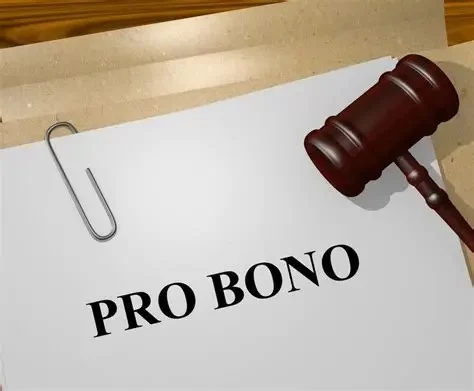
- 1 - What Pro Bono Work Really Means
- 2 - Do Lawyers Get Paid for Pro Bono Work?
- 3 - Why Lawyers Volunteer Their Time
- 4 - Real-Life Case Study: Pro Bono Making a Difference
- 5 - The Impact of Pro Bono on Communities
- 6 - Expert Insights and ESPLawyers Recommendations
1 - What Pro Bono Work Really Means
1.1 - Defining Pro Bono Service
When people ask, do lawyers get paid for pro bono work, the first step is clarifying what “pro bono” means. The term comes from the Latin phrase “pro bono publico,” which translates to “for the public good.” In legal practice, it refers to professional legal services provided free of charge to individuals or organizations who cannot afford them.
1.2 - Scope of Pro Bono Cases
Pro bono services can cover a wide range of legal needs, including housing disputes, immigration cases, domestic violence protections, and nonprofit support. These services bridge the gap for those who would otherwise lack representation in critical matters.
2 - Do Lawyers Get Paid for Pro Bono Work?
2.1 - The Direct Answer
The straightforward answer is no—lawyers do not get paid by their clients for pro bono work. By definition, these services are offered without a fee. However, the question do lawyers get paid for pro bono work becomes more nuanced when considering indirect benefits.
2.2 - Indirect Compensation
Some law firms receive tax benefits, grants, or community recognition for providing pro bono services. Additionally, young lawyers gain experience that enhances their careers. While money is not exchanged, the value of pro bono work extends beyond finances.
3 - Why Lawyers Volunteer Their Time
3.1 - Professional Duty
The American Bar Association recommends that lawyers dedicate at least 50 hours a year to pro bono work. Many lawyers view it as both a duty and an opportunity to uphold justice in society.
3.2 - Personal Fulfillment
Attorneys often describe pro bono cases as some of the most rewarding in their careers. Helping vulnerable clients, standing up for human rights, and seeing tangible impact provide a sense of meaning that money cannot replace.
4 - Real-Life Case Study: Pro Bono Making a Difference
Consider the story of a New York immigration attorney who took on a pro bono asylum case. The client, a young woman fleeing political persecution, could not afford legal representation. The attorney’s unpaid efforts led to a successful asylum grant, allowing the woman to rebuild her life in safety. This example vividly illustrates why so many ask, do lawyers get paid for pro bono work, and why the true reward often lies in life-changing outcomes rather than financial gain.
5 - The Impact of Pro Bono on Communities
5.1 - Expanding Access to Justice
Without pro bono work, millions of low-income Americans would go unrepresented. Pro bono services ensure that justice is not reserved only for those who can afford it.
5.2 - Building Stronger Legal Systems
By contributing their expertise, lawyers strengthen trust in the justice system and reduce inequality. Communities benefit from fairer outcomes when lawyers donate their time and knowledge.
6 - Expert Insights and ESPLawyers Recommendations
Experts emphasize that while lawyers do not earn direct income from pro bono work, the societal benefits are profound. Pro bono helps attorneys grow professionally and gives communities access to justice they might otherwise miss. For individuals seeking reliable legal guidance, ESPLawyers offers trusted services, ensuring that both paid and pro bono support are delivered with professionalism and care. This balance reinforces why pro bono remains an essential tradition in American legal culture.








